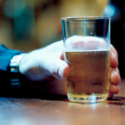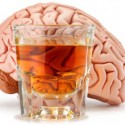Call
888-647-0579
to speak with an alcohol or drug abuse counselor.
Who Answers?
Addiction Science
It’s challenging for some to understand why addiction affects one individual and not the next. In fact, even doctors and treatment professionals are sometimes at a loss of words when it comes to explaining the science behind addiction and what it is that makes some people become addicted to drugs or alcohol while others steer clear of the problem. Scientific advances have helped doctors, treatment professionals and others to better understand the science behind addiction and continued research embarks on the consistent journey to discover more about what it is that causes addiction and addictive behaviors.
People of all ages suffer the harmful consequences of drug abuse and addiction.
The National Institute on Drug Abuse, NIDA, estimates that the total cost of addiction to drugs, alcohol, nicotine and illegal substances is upwards of half a trillion dollars each year in America alone. This includes the impact that drug abuse and addiction has on the economy, the criminal implications that arise from addiction, the medical needs that result and the overall social impact of addiction. More than half a million people die as a result of addiction related causes each year in the United States.
The Science Behind Addiction
There are a number of ways that science has helped to provide solutions for those who are addicted to drugs or alcohol. Scientists study the ways that drugs, alcohol and other substances affect the brain and how these chances impact human behavior. The information that is gained helps in making better judgment calls when it comes to addiction treatment and also when it comes to finding new methods of helping people to effectively recover.
Addiction is a chronic disease that is characterized by changes in the brain which result in a compulsive desire to use a drug. Through science, it has been determined that an individual’s risk of becoming addicted can be influenced by a number of factors including both genetics and environmental influence. Addiction science focuses on taking a closer look at how all of these factors, everything from biology to the environment to family, influence people to used drugs or alcohol and to potentially become addicted.

Alcohol consumption is probably as old as human civilization, and so is its abuse. The social and physiological ill effects of alcoholism are well known. What is less clear is why certain individuals are more predisposed to it. Alcohol addiction is a multifactorial phenomenon where personality traits, individual and social influences interact with neurobiology, creating….
Continue reading ›

Children with fetal alcohol spectrum disorders (FASD) are often initially diagnosed with attention-deficit hyperactivity disorder, since the two problems can manifest in similar ways, a new study shows. However, children with FASD have more difficulty interpreting social information than children with ADHD, and this results in more severe behavioral problems, the researchers found. The study….
Continue reading ›

Men who drink alcohol heavily and on a regular basis may be putting themselves at increased risk for prostate cancer, according to a new study published in Cancer, the American Cancer Society’s peer-reviewed medical journal. The study also found that heavy alcohol use may diminish the possible preventive properties of finasteride, a drug that has….
Continue reading ›

Finding could spawn novel ways to treat alcoholism, epilepsy A team of researchers, with Nepali-born Prafulla Aryal as key member, of the Salk Institute of Biological Sciences in La Jolla, California, has located the alcohol-binding site in the brain that could pave the way to a whole new approach to treating alcoholism, drug addiction, abuse-related….
Continue reading ›

Drinking during pregnancy can seriously harm a baby’s brain, yet thousands of mothers-to-be still do. Now scientists have begun testing whether a prenatal nutrient might offer those babies a little protection, part of a growing quest for ways to reverse the damage. The only help today: intense behavioral or educational therapies once children with fetal….
Continue reading ›

With high school graduation season in full swing, many parents are worried that alcohol may play a harmful role in their teens’ celebrations. An organization that studies teen drinking says parents should assume their teens will drink, and should use science to try to dissuade them. The Science Inside Alcohol Project advises parents to explain….
Continue reading ›

Maybe denial really IS just a river in Egypt. Lorraine T. Midanik, dean of the School of Social Welfare at the University of California in Berkeley, is convinced that the contemporary concept of denial as applied to alcoholism represents a weak link in the disease model of addiction. Neither the founding fathers of Alcoholics Anonymous,….
Continue reading ›
Cocaine is one of the oldest drugs known to humans, and its abuse has become widespread since the end of the 19th century. At the same time, we know rather little about its effects on the human brain or the mechanisms that lead to cocaine addiction. The latest article by Dr. Marco Leyton, of the….
Continue reading ›
In treating alcohol abuse and alcoholism, “we haven’t yet reached the Prozac moment,” says Dr. Mark Willenbring, referring to the drugs that radically changed the treatment of depression. But Dr. Willenbring, an expert on treating alcohol addiction, predicts that the day is not far off when giving a pill and five minutes of advice to….
Continue reading ›
More under-65s – and women in particular – will suffer alcohol-related brain damage, say doctors Women are more at risk of dementia through drinking because they metabolise alcohol differently from men. Heavy drinking may be to blame for one in four cases of dementia. Doctors have linked alcohol intake to the development of the brain-wasting….
Continue reading ›






